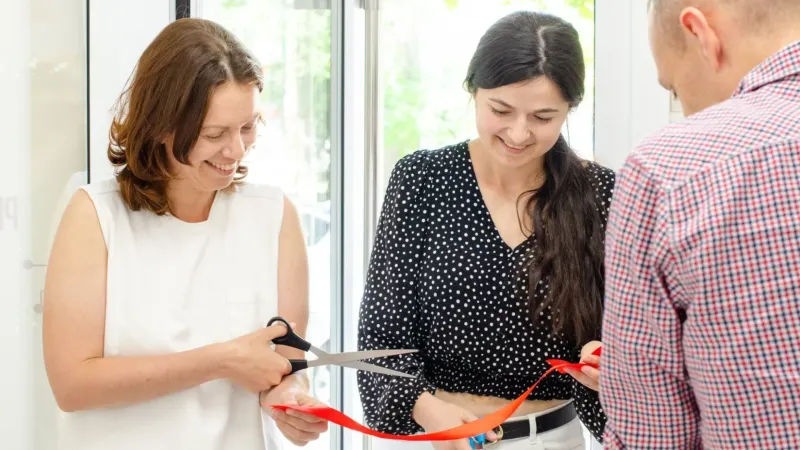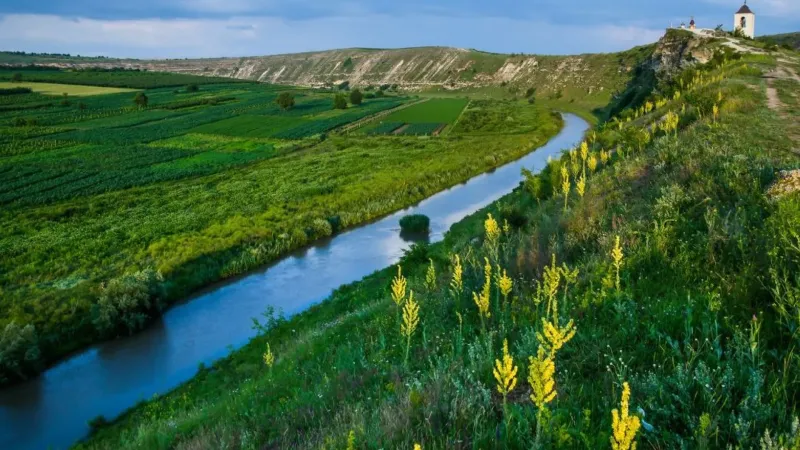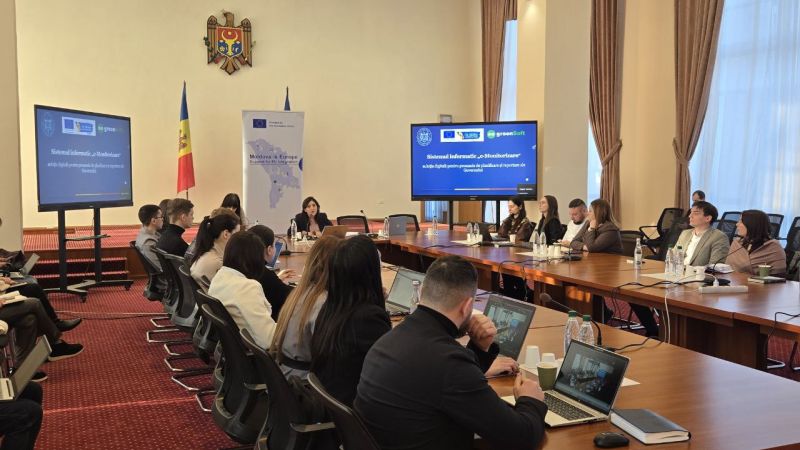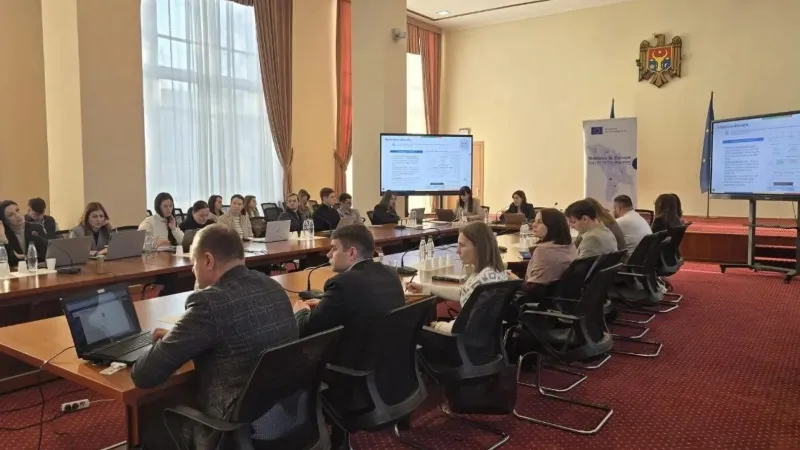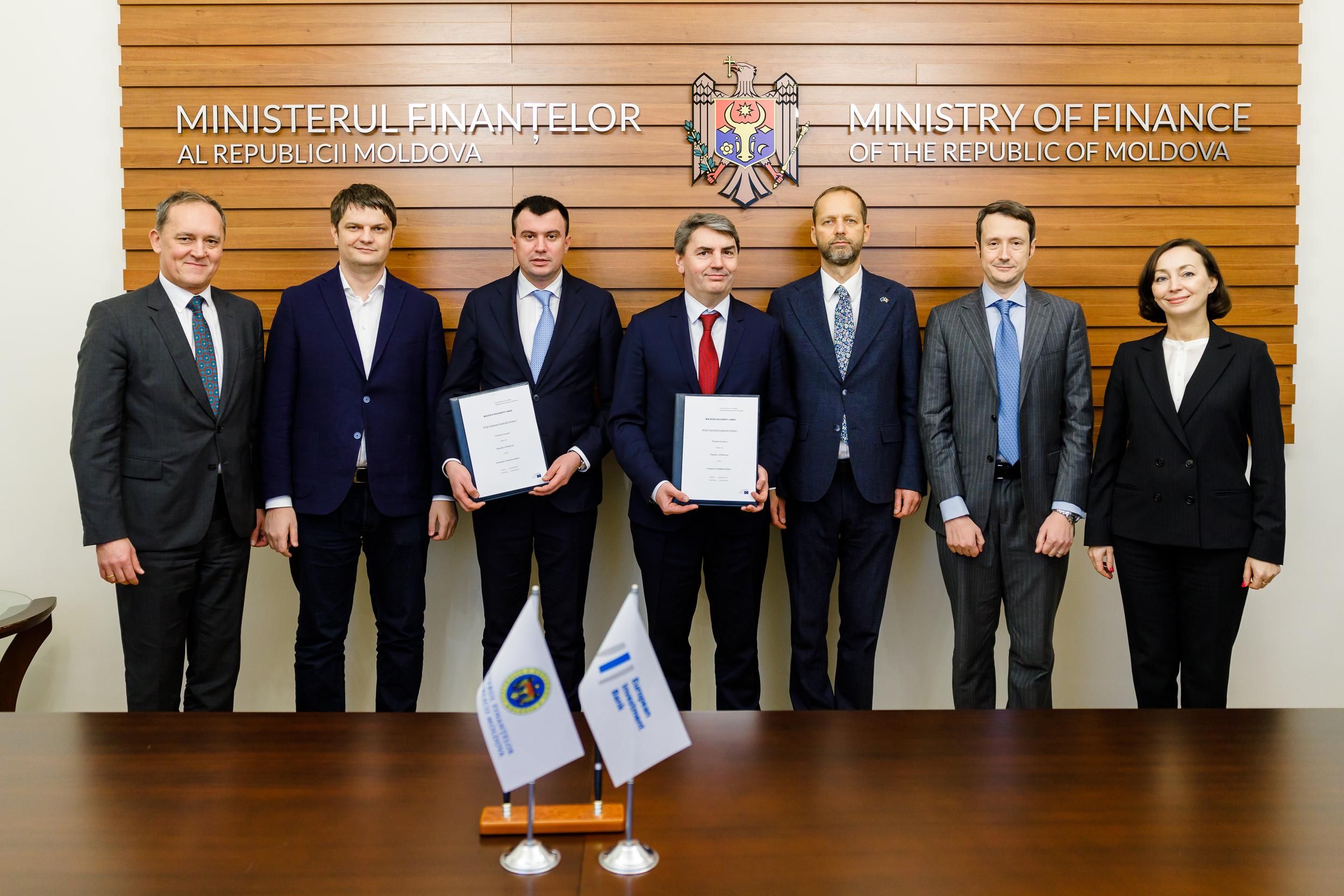
BEI Global investește 41,2 de milioane de euro în reabilitarea infrastructurii feroviare din Moldova
- Împrumutul va fi însoțit de un grant UE în valoare de 12 milioane de euro, destinat să îmbunătățească conectivitatea internă și să aducă beneficii economice de durată pentru întreaga regiune.
- Proiectul include reabilitarea a 128 km din coridorul feroviar nord-sud, de importanță vitală în Moldova, care facilitează comerțul și circulația între Moldova, Ucraina și Europa, ceea ce este deosebit de important în contextul inițiativei Culoarele de Solidaritate a UE.
- Proiectul va contribui la reducerea aglomerației rutiere și la consolidarea sustenabilității mediului, în conformitate cu obiectivele strategiei UE „Global Gateway”.
BEI Global, direcția specializată în finanțarea dezvoltării din cadrul Băncii Europene de Investiții (BEI), a semnat un acord de împrumut în valoare de 41,2 de milioane de euro cu Guvernul Republicii Moldova pentru reabilitarea infrastructurii feroviare a țării. Această investiție, completată de un grant de investiții al UE în valoare de 12 milioane de euro, anunțat în cadrul Forumului Global Gateway la începutul acestui an, va îmbunătăți conectivitatea internă a Moldovei și va asigura o rută de export extrem de importantă pentru Ucraina, favorizând stabilitatea regională și reziliența economică.
Reabilitarea coridorului feroviar nord-sud al Moldovei este obiectivul central al proiectului. Din lungimea totală de 370 km, vor fi reabilitați aproximativ 128 km, ceea ce include și înlocuirea a 50 de macazuri din stații. Acest coridor servește drept o legătură vitală între vestul Ucrainei și porturile cheie de-a lungul râurilor Dunăre și Prut, asigurând astfel acces la apele internaționale. Îmbunătățirea legăturii feroviare existente între Moldova și Ucraina este concepută pentru a stimula activitatea comercială, promițând beneficii semnificative pentru exporturile ucrainene și pentru economia moldovenească, în special în contextul inițiativei Culoarele de Solidaritate UE-Ucraina.
Proiectul va fi implementat de către operatorul feroviar Calea Ferată din Moldova și va include reabilitarea infrastructurii feroviare pe coridorul Vălcineț-Ungheni-Chișinău-Căinari din Moldova. Acest angajament este parte a unei reforme generale, la nivelul întregii țări, de îmbunătățire a infrastructurii feroviare existente și de aliniere pe termen lung, a rețelei feroviare din Moldova, la standardele și practicile UE.
Această inițiativă va fluidiza traficul rutier și de frontieră prin înlocuirea transportului de mărfuri de la camioane la transportul feroviar, sporind mobilitatea și reducând impactul asupra mediului. Aceasta se aliniază la obiectivul strategiei UE „Global Gateway” privind transportul sustenabil, contribuind la o logistică mai verde și mai eficientă.
Ministrul Finanțelor Republicii Moldova, Petru Rotaru, a declarat: „Implementarea proiectului va genera mai multe beneficii, cum ar fi micșorarea duratei curselor feroviare, creșterea cotei de piață a transportului feroviar de mărfuri de mare tonaj și a celui de gabarit, micșorarea sarcinii asupra infrastructurii rutiere, reducerea gradului de uzură a drumurilor și sporirea nivelului de siguranță în trafic rutier.”
Vicepreședintele BEI, Teresa Czerwińska, care este responsabilă de operațiunile din Moldova, a declarat: „Pe măsură ce Moldova devine un punct esențial pentru activitatea comercială și de tranzit, este vitală îmbunătățirea infrastructurii sale de transport. Sunt încântată de faptul că investiția noastră va contribui la consolidarea rezilienței rețelei feroviare din Moldova și la îmbunătățirea conectivității acesteia cu Ucraina și Europa, oferind totodată avantaje economice considerabile. Având în vedere aspirațiile de aderare a Moldovei la UE, suntem ferm angajați să ajutăm țara să își alinieze sistemele și infrastructura la standardele UE, facilitând astfel integrarea sa mai profundă pe piața UE și oferindu-i susținere în drumul său spre aderarea la UE. Moldova se poate baza pe banca UE atât pentru sprijin financiar, cât și tehnic, în consolidarea infrastructurii sale cu proiecte de calitate.”
Ambasadorul Uniunii Europene în Republica Moldova, Jānis Mažeiks, a afirmat: „Această investiție va consolida reziliența infrastructurii feroviare moldovenești, va îmbunătăți conectivitatea Moldovei cu Ucraina și Europa și va aduce beneficii pentru economia țării. Pe măsură ce Moldova devine parte integrantă a sistemului transeuropean de transport (circulația bunurilor, a persoanelor și a serviciilor), modernizarea infrastructurii de transport a țării este imperativă. Având în vedere statutul de candidat al Moldovei și aspirațiilor sale de a adera la Uniunea Europeană, vom continua să sprijinim țara și să modernizăm toate rutele necesare.”
Informații de context:
BEI Global este noua direcție specializată a Grupului BEI dedicată sporirii impactului parteneriatelor internaționale și a finanțării pentru dezvoltare, în afara granițelor Uniunii Europene. BEI Global este concepută pentru a pune bazele unui parteneriat puternic și focalizat în cadrul inițiativei „Echipa Europa” și ca parte a strategiei UE „Global Gateway”, alături de alte instituții de finanțare pentru dezvoltare și societatea civilă. Prin birourile noastre din întreaga lume, BEI Global aduce Grupul mai aproape de populația, companiile și instituțiile locale.
BEI Global și Moldova: Din momentul în care și-a început activitatea în Moldova în 2007, BEI a direcționat peste 1,19 miliarde de euro către 33 de proiecte, susținând obiectivele de politică ale UE în mai multe sectoare, precum transport, energie, IMM-uri, agricultură și infrastructură municipală. Anul 2022 a fost un an record pentru BEI în Moldova, oferind credite noi în valoare de 250 de milioane de euro semnate cu sectorul public. În 2023, Banca a acordat primul său împrumut corporativ în Moldova, un proiect de 30 de milioane de euro cu Premier Energy Distribution, principalul operator privat de distribuție a energiei electrice din Moldova, având drept obiectiv îmbunătățirea calității și fiabilității rețelei de energie electrică.
Global Gateway este strategia Uniunii Europene de reducere a decalajului în materie de investiții la nivel mondial și de stimulare a conexiunilor inteligente, curate și sigure în sectorul digital, al energiei și al transporturilor și de consolidare a sistemelor de sănătate, educație și cercetare. Strategia Global Gateway întruchipează o abordare de tip „Echipa Europa”, care reunește Uniunea Europeană, statele membre ale UE și instituțiile europene de finanțare a dezvoltării. Aceasta vizează mobilizarea a până la 300 de miliarde EUR în investiții publice și private între 2021 și 2027, creând conexiuni esențiale, în loc de dependențe, și reducând decalajul global de investiții.
Culoarele de solidaritate UE-Ucraina reprezintă o inițiativă dezvoltată ca răspuns la dificultățile cu care se confruntă Ucraina în urma invaziei la scară largă a Rusiei, în special blocada porturilor ucrainene de la Marea Neagră. Aceste culoare stabilesc rute logistice alternative care utilizează diverse moduri de transport, inclusiv rute, prin Moldova, pentru a lega Uniunea Europeană de Ucraina. Această inițiativă, lansată de Comisia Europeană în mai 2022, vizează facilitarea exporturilor agricole ale Ucrainei și a comerțului bilateral cu Uniunea Europeană, care au fost grav afectate de război.

